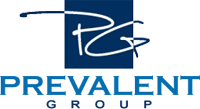When preparing for an interview, it is very easy to get mired down in the details of the process: research, preparing answers, developing a list of references, etc. Given all of the advanced preparation needed for an interview, it’s easy to lose sight of the fact that at the end of the day, interviewers will be drawn to the candidates that they genuinely like. That means that you have to be able to make a connection with each interviewer. This can be easy when you are sitting across from an open, friendly hiring manager, but it can be difficult when you’re sitting face to face with a serious interviewer, or a hiring manager that might be having a bad day at work.
So how can you make a connection with an interviewer, no matter what their personality or demeanor? You can’t expect to click with every hiring manager you meet, but these tips can help you develop rapport with most interviewers you encounter in your job search.
Remember That First Impressions Matter
We are taught at a young age not to make snap judgments about people, but it is human nature to make assumptions about new people within the first few seconds of meeting them. Hiring managers are no exception.
Be sure that you are dressed professionally, regardless of the company’s dress code. Style your hair neatly, and keep jewelry to a minimum. Smile warmly, make good eye contact, and be sure to extend your hand for a firm and welcoming handshake.
Learn the Art of Mirroring
Mirroring, the conversational art of imitating the behaviors of the person you are talking to, is an excellent strategy for making a connection with an interviewer. So, if you are faced with a high-energy interviewer who smiles and laughs frequently, match your energy level to hers. However, if the interviewer is serious and no-nonsense, tone your energy level down.
Mirroring is a solid strategy for the early stages of your interview. As you relax and get into the conversations, allow your own personality to shine through. It’s important to be yourself so that you and the interviewer can determine whether or not you are a cultural match for the organization.
Don’t Save Questions Until the End
Interviews can be stressful for a number of reasons, but at their core, these conversations are unlike any that you have in real life. A regular conversation flows freely, with questions, replies, comments, etc. If you want to create a more natural feel for the interview and develop a connection with the interviewer, don’t wait until the end to ask your questions. Instead, ask them naturally, as they arise.
For example, if your interviewer asks where you see yourself in five years, and you lay out your desired career path, follow up your answer by asking about the company’s internal career and leadership development opportunities. Asking questions throughout the natural course of the interview will help establish rapport, and can lead to some interesting exchanges with the hiring manager.
If you are on the hunt for new and exciting opportunities to grow your career, contact
The Prevalent Group today. As a nationally recognized
management and executive placement and recruitment agency based in Northern Illinois, we work with experienced managers and executives in sales, marketing, engineering, technology and more. We match our talent with opportunities that can help them rise to new challenges, and we will work closely with you to help you perfect your interviewing skills to make a lasting, positive impression on hiring managers.
